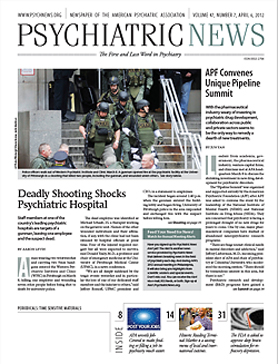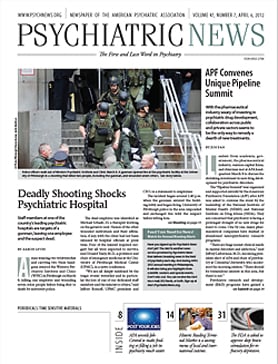Use of methylphenidate in adults was associated with an increase in ventricular arrhythmia and sudden death, but this association does not appear to be causal.
That’s one conclusion from a comparison of adult methylphenidate users and nonusers on four primary cardiovascular outcomes: sudden death or ventricular arrhythmia, stroke, myocardial infarction, and a composite endpoint of stroke or myocardial infarction; a secondary outcome was all-cause death.
The study appeared in the February American Journal of Psychiatry.
The study used administrative data from a five-state Medicaid database and a 14-state commercial insurance database. A total of 43,999 new methylphenidate users were identified and matched to 175,955 nonusers.
Results of the study render an ambivalently reassuring picture of the cardiovascular safety of the widely used stimulant: it was not associated with increased risk for stroke, myocardial infarction, or the composite endpoint of stroke or myocardial infarction; and the association with arrhythmia-sudden death was not dose related, suggesting that the association is not causal and may be the result of confounding factors.
That conclusion is further supported by the finding of unexpected inverse associations between high methylphenidate dosage and stroke, myocardial infarction, stroke/myocardial infarction, and all-cause death. In other words, the risk of an adverse event was greater with lower doses of methylphenidate, which suggests that adverse events are occurring among older, more frail patients being prescribed low doses of the drug but who have preexisting risk factors.
“I would be very reluctant to advise clinicians on the basis of these results to take patients off of a drug that may be providing them a benefit, when the associations with adverse events may well not be causal,” said senior author Sean Hennessy, Pharm.D., Ph.D.
In an editorial accompanying the articles, Christopher Kratochvil, M.D, a professor of psychiatry and pediatrics at the University of Nebraska, noted that the study is one of three, including one in Pediatrics by the same authors (and another by other authors in the New England Journal of Medicine), offering, along with the AJP article on long-term use in children, broad support for the cardiovascular safety of stimulant medications.
“The articles in this issue on cardiovascular safety, coupled with the recent articles in
Pediatrics and the
New England Journal of Medicine, are generally reassuring and demonstrate movement in the right direction, with systematic retrospective analyses better informing us of issues related to cardiovascular safety with ADHD pharmacotherapy,” Kratochvil wrote. “While gaps persist in the methodical and comprehensive assessments of the safety of ADHD medications, these studies add valuable information to our already large repository of safety and efficacy data of ADHD pharmacotherapies and better inform the risk-benefit analysis of their use.”


